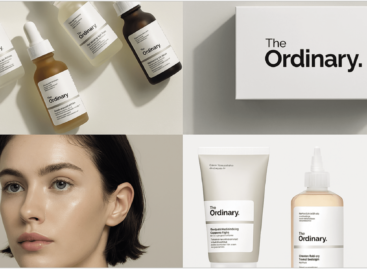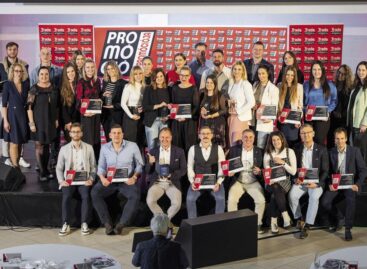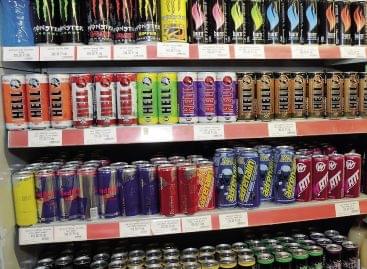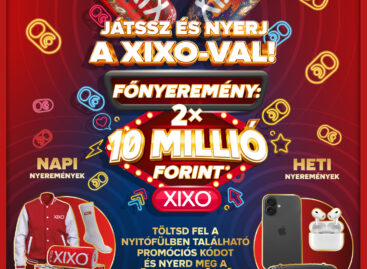Consumer trust and brand equity correlate
In the last 18 months the pandemic had an influence on the world of brand building too. Experience is that in times of uncertainty consumers don’t want new innovations but familiarity. This can be best provided by a strong brand and the consumer trust it has.
The 2021 Superbrands winners have also realised quickly that there was bigger need than ever for communicating empathy and helpfulness. Storytelling took the central stage in the communication of the best brands, as they have understood that they needed to inform consumers about their responsible behaviour. Why? Because consumer trust correlates with brand equity: if the brand can increase the former, the latter will automatically grow.
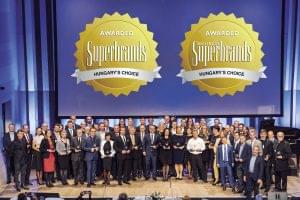
Superbrands Hungary has been monitoring and evaluating the brands excelling in brand building for more than 15 years
Superbrands set a good example in many respects
In 2021 the Superbrands prize also shows which brands were able to cope with the difficulties caused by the pandemic. The Superbrands Programme is active in more than 90 countries and it has been evaluating the best brands in Hungary since 2004; since 2009 the Business Superbrands recognition can also be won.
This year approximately 500 consumer brands and 500 business brands were selected as Superbrands or Business Superbrands by the Superbrands Expert Council in Hungary. The council consists of more than 40 independent experts who give scores from 1 to 7 in the following categories: brand tradition, history, market performance, reputation, the company’s goodwill and ethical credit, brand popularity, innovation work and brand strategy.
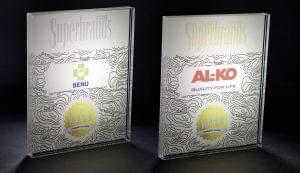
In 2021, 500 B-2-B and 500 consumer brands have been successful and selected to bear the Superbrands and Business Superbrands titles
They also work for the consumers and the employees
Brands find it increasingly difficult to stand out from the crowd in the labour market as well. It can be of great help if a brand is strong: this is why companies like to use the Superbrands and Business Superbrands recognitions in recruitment, reinforcing the brand’s position and raising its prestige – by this differentiating the company from competitors. //
Those who decided
Data-driven planning

Zsófia Bánhegyi
marketing and
communications director
Szerencsejáték
The pandemic strengthened brand loyalty if the given company managed the situation well, and besides advertising its product or services, it also started (or continued) long-term activities for the benefit of the society. A good brand is already planning activities in a data-driven fashion, developing the online and the offline customer experience at the same time – in accordance with the more diverse approaches and expectations of Generation Z. //
Motivation and brand loyalty

Tamás Barna
managing director
Republic Group
In the Superbrands jurying I focused on who were able to flexibly adapt to the COVID-19 period. When the pandemic began there was great turbulence and during the first wave every company reacted by utilising their own set of tools – and most of them did it pretty swiftly. In 2021 good brands did their best to use the opportunity and enter into meaningful relationships with their customers after a year and a half. Companies should be brave and try new directions and tools, which can satisfy changing emotions. //
Companies and brands live off their good reputatio

Andrea Duca
managing partner
HD Group
People spending more time at home and not spending money on eating out or going on holiday increased the sum households spent on FMCG products. With the expansion of online shopping it has become even more important for consumers to order brands that they know and trust. Companies and brands live off their good reputation. A good brand innovates and tries to find new roads leading to success if the old ones disappear.//
The strong brand

Zsuzsanna Hermann
owner-Editor-in chief
Trade magazin
A strong brand attracts investors, suppliers, business partners and potential workers. Those who are building a strong brand today develop complex systems instead of simple solutions, doing research to find out what is really working in the Hungarian market. The pandemic showed that it is strong brands that are capable of quick renewal. //
Value creation instead of classic messages

Zsófia Lakatos
managing director
Emerald Public Relations
The pandemic didn’t only change consumption habits but also how companies communicate. Instead of classic marketing messages what shoppers want now is value creation, collective thinking and brands playing a more active role in communities. Brands need to understand how things have changed and grow up to the task. It is difficult to communicate now, because people’s reactions are quite incalculable. //
Different times, different message

Dr. János Serényi
owner-MD
Értéktrend Consulting
The pandemic waves showed just how important the cooperation between various economic actors is. Waves of the pandemic forced branding experts to use new type of communication. Instead of the good old ‘Look at me how good, beautiful and desired product or service I am’ type messages a growing number of brands are focusing on the importance of protecting and creating shared values – for the benefit of all of us. //
Presence and reaction

Edit Szabó
digital marketing
executive & trainer
DitteDigital
This year finally brought the long-awaited communication breakthrough, as many companies were forced to enter the online space and thanks to this the digital transformation happened. From a brand building perspective this meant that the online presence had to be uninterrupted, as shoppers like to follow those brands that are accessible and engage in open communication. Those brands will be able to stay strong in the long run which are sensitive to people’s problems, keep up with the latest trends and communicate honestly. //
Compass in the product world

Ibolya Szabó
head of corporate affairs
Dreher Brewery
Because of the pandemic transparency, honesty and partnership have become more important than ever before. Brands have to represent important values in addition to product quality, price and accessibility – such as sustainability, ethical sourcing, social responsibility, etc. In the world of products brands can be the compass for consumers to find their way, especially those with great prestige and traditions such as Superbrands. //
Changes in consumer behaviour

Dr. Gedeon Totth
director of institute, faculty head, college professor
Budapest Business School
The virus made big changes in consumer behaviour. In the FMCG sector the proportion of private label products increased. This also means that brand loyalty dropped in certain categories. However, those shoppers who still prefer physical stores try to spend less time in shops, and brand loyalty can speed up the shopping process. It is also true that at times of crisis ‘B’ brands are facing the biggest threat. //
From a social psychology perspective

Dr. László Újszászi Bogár
owner
meggyozes.hu
In the COVID situation many brands realised it too late that the very important first impression thing is now ‘relaunched’, as there is a new situation. If the first communication in this situation isn’t good or doesn’t happen, the negative preconceptions of customers are reinforced. At this point those brands which still had work to do in establishing customer loyalty had a great opportunity, while those with loyal customers faced great dangers. //
Related news
Promotion 2025: simplicity, data and experiences
Tamás Barna, owner and managing director of Republic Group was…
Read more >Promotion of the Year 2025 awards presented on the Day of Promotions
Trade magazin organised the Promotion of the Year 2025 competition…
Read more >Dalí in Vienna: another international success for the Republic Group
An exhibition of Salvador Dalí’s works opened in Vienna under…
Read more >Related news
What makes us add the product to the cart – research
The latest joint research by PwC and Publicis Groupe Hungary…
Read more >Energy drinks are now legal: what every shopkeeper should know
New regulations on the sale of energy drinks came into…
Read more >Tens of millions with one opening tab – the biggest prize draw in XIXO history has started
This summer, XIXO is preparing for a bigger launch than…
Read more >
